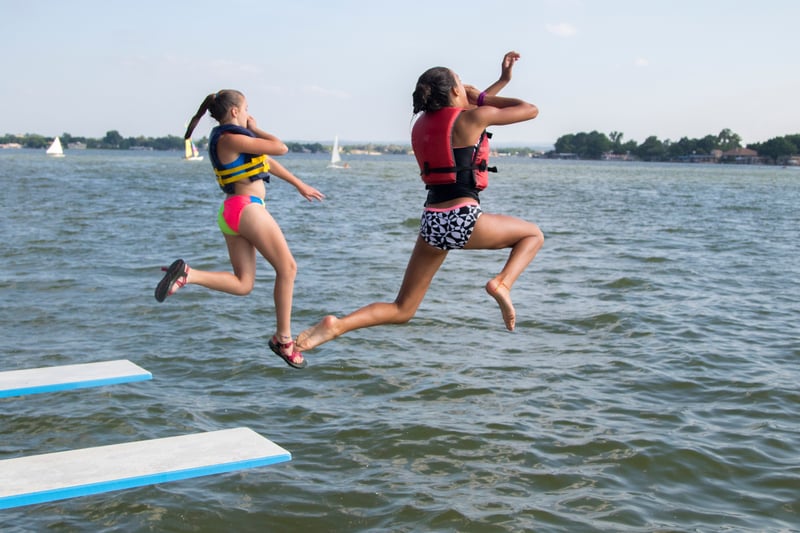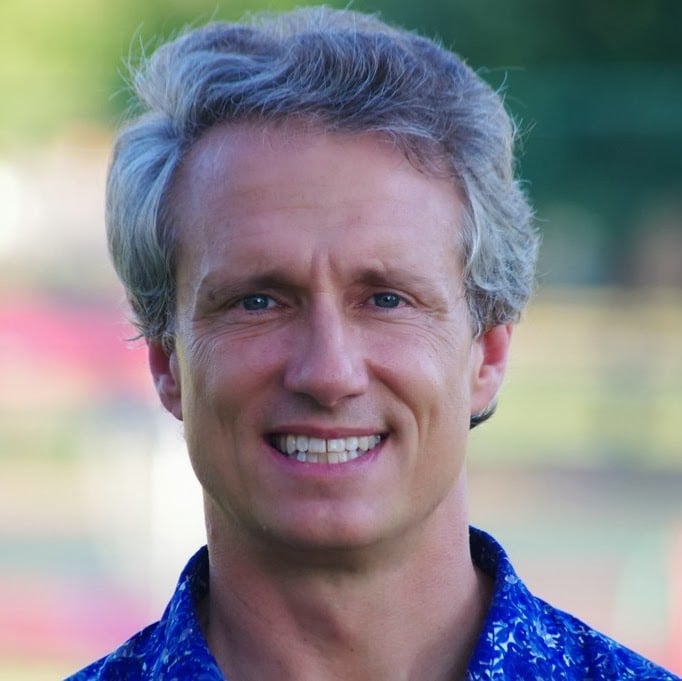
When I was a camper in the 1970’s, camp was my favorite place in the world. Not only did I have fun and make friends, but I believed that I was a better person at camp. At camp, I felt funnier, more likable and more confident. In fact, I even believed I was a better athlete who was able to run faster: I called it my “Camp Speed”.
Of course, my legs worked the exact same way in Midland, Texas as they did outside Kerrville, but I truly believed that my speed varied by my location. In 6th grade, I placed a close 2nd in a 40 yard-dash behind Tommy Hill, the recognized athlete in our class. It was only then (after 4 summers of believing in my Camp Speed) that I realized that I was equally fast everywhere.
I, however, continued to think of myself as more likable and engaging in the camp cocoon. It would take several more years before I learned that the easy smile and simple jokes that worked at camp would work at home.
When Susie Ma’am and I decided to become full-time camp directors, I told her about this experience. This conversation prompted a dialogue that continues to this day: what can we do to help campers bring home the benefits of camp?
Developmental psychologists call this “learning for transfer”. Put simply, it means that people generally do not naturally transfer lessons from one context to another. For example, a student might believe that she is good at math, but weak at science. When this student studies physics, she struggles because she thinks of it as “science” when it is really much more like math. A boy who becomes a skilled free throw shooter through committed practice does not realize that the same focus would enable him to learn an instrument or a language.
In the same way, campers often develop self-confidence, self-control and other skills at camp but fail to bring these skills home. Since we are committed to helping our campers thrive here and at home, this is a challenge that we actively embrace.
One of the benefits of cabin Nightly Rituals is to try to make the lessons of camp relevant to home life as well. If you read the article yesterday about Optimism, you can see some of the tools that we use to foster more positive mindsets, including listing gratitudes or doing acts of kindness. We strive to point out how different skills will benefit campers when they get home. When Susie Ma’am and I meet with the Senior Campers (the high school leadership program), we specifically focus on making the lessons transferable to home, from reducing technological usage to walking with a confident posture.
I have come to believe that parents are the key to assuring that campers bring the maximum benefit of camp to the home. Here are a few suggestions that you can try once your camper returns.
- Start a tradition of sharing “gratitudes” each day. The rules are that they need to be specific and different each day. Small gratitude are OK (“I enjoyed playing tag with the puppy this morning” or “My teacher told a funny joke”), but it important that it differs each day.
- Bring some of the language of camp home. We know parents that talk about the “4 R’s”, Respect, Responsibility, Reaching out to others and Reasonable Risks. Parents of teens particularly like using “Reasonable Risks” as a framework for good decision-making.
- Talk with your campers about challenges that they overcame at camp and ask them what skills made their successes possible. Then help them think of examples at home where the same abilities would be helpful. If they learned to get along with a cabinmate that annoyed them at first, that skill will help them make friends at school. The determination that enabled a child to learn to ski can be applied to a challenging school subject. In other words, help them connect their successes at camp to challenges at home.
Finally, please share with us any success stories that you may have. We are leading an effort of camp professionals and academics (including a talented group from the University of Virginia) to find ways to maximize “transfer” from camp to real life. Any ideas from you would be deeply appreciated!
Steve Sir


